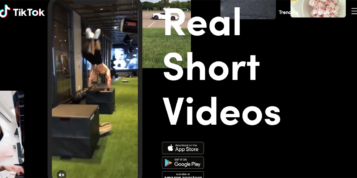Unum is an insurance company that specialises in the provision of Income Protection, alongside Life and Critical Illness insurances. Specifically, we provide “Group” products – sold to businesses who insure a group of their staff as part of their employee benefits. So our marketing, and that of our competitors, had been done like most B2B businesses: glossy product collateral, trade advertising and conferences.
The problem was that this wasn’t working. Despite only 1 in 10 private sector employees having Income Protection, and a clearly demonstrable need for better protection of finances against the risk of long-term illness or injury, market growth had been a pitiful 1% a year for the last 5 years.
The underlying issue was that those self-same employees typically had little idea what Income Protection was or why they needed it. Consequently they weren’t asking their employers for IP as part of their benefits package, thereby blocking market growth. It was clear that we needed to start having conversations with those workers, and not just their employers. We needed to explain what Income Protection is, why it’s important and why it’s a good back-up plan in case of long-term illness or injury. The result is our consumer-facing “Back-up Plan” campaign: a £15M, 3-year, integrated campaign, with social media at its heart.
The role of social in the campaign is critical. We’re trying to explain to people a product they’ve never heard of, for a problem they’ve never considered, and from a company they’ve never heard of. That’s a lot to do, and there’s only so much you can say in a 30-second TV ad! TV delivers scale like nothing else can, but the best medium for telling the more in-depth story was a digital one. But beyond that, we also wanted to stimulate conversations between employees, their friends and families, and ultimately their employers about the importance of Income Protection. Social is uniquely suited to facilitating such sharing and debate. Too many companies do social media “because they think they should” or “because everyone else is”, without having a clear purpose and strategy behind it. Those are doomed to inefficiency at best, and at worst, total failure.
So, to that end, we’ve progressively developed presences in a number of social spaces. We began with a wholly-owned blog space, unum.co.uk/AskUnum, where people could submit Q&A. This meant we could start to interact with people, but with pre-moderation that helped us manage risk, as we learned more about how social would work. This had an associated @AskUnum twitter feed, and pulled video content in from our youtube.com/unumuk page. We followed that with the more campaign-focussed facebook.com/BackUpPlanUK space and associated BackUpPlan.com website. We’re now developing a basic Google+ equivalent as well.
Social networks gave us way to engage the majority of people who find the concept of Income Protection confusing, uninteresting or downright depressing. Indeed, life insurers have historically taken a “scare tactics” approach to their marketing. But this just turns people off, or makes them stick their heads in the sand. Counter-productive. The more relaxed, personal nature of places like Facebook gave us licence to raise the issue in a lighter-hearted, more positive way. We have been able to spark discussion without making our audience ‘run to the hills’ at the first mention.
A great example is our use of Facebook apps: the Penny Jar app, gives a rough calculation of how long someone would be able to survive financially if they lost their income and had to rely on their savings, whilst the Perkulator is designed to help employees understand how much value they get from their benefits package. These have allowed us to get people thinking about protection in a fun and engaging way, whilst still driving home a clear and compelling message: the importance of having a back-up plan. Likewise our celebration of Shakespeare’s birthday, with a sonnet to Income Protection – a very different way to explain what IP does!
Our first foray into consumer-facing marketing has of course necessitated a different way of working for us. But social media in particular has had the biggest impact, since social networks are ‘live’ spaces. With a TV advert the work might be done once the ad hits the screen, but with social media it is essential to maintain interaction beyond the initial launch or risk creating a black hole that people’s comments and questions simply disappear into. We’ve therefore recently hired a full-time social media community manager, to keep our AskUnum and Facebook presences live and interactive. We also listen to our growing communities to make sure we deliver fresh content that they like. For example, we saw a lot of speculation online that our Tablecloth TV ad was faked – by CGI, trick photography or magnets. To prove otherwise, we developed an outtakes video from the ad shoot, which became our most shared piece of content, getting a Facebook social reach of over 850,000!
After the first year, results have been positive. We have answered around 750 questions from the public on AskUnum, whilst our Facebook following rose from 0 to 14,300 in just 8 months. This is comfortably the UK’s 3rd largest insurance provider Facebook page behind household brands Aviva and MoreTh>n – who spend vastly more on advertising than we do! Moreover, 1 in 10 HR managers say they’ve had conversations with their staff in the last 6 months – actual behaviour-change. This success is a testament to the effectiveness of planned, deliberate social media marketing. If carefully directed, social isn’t just for more dynamic brands, but for all businesses – even B2B – that might never have considered social before.
So if you hear employees asking about the value of their benefits packages and the need for a back-up plan, then you’ll know just how effective social can be.






